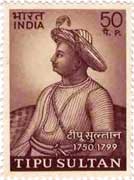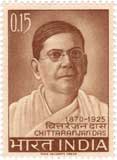Themes & Thoughts of the day : November
| 20 November : Tipu Sultan's birth anniversary | |
“To live like a lion for a day is far better than to live for a hundred years like a jackal.”- Tipu Sultan Tipu Sultan (b. 20 November 1750 - d 4 May 1799), also known as the Tiger of Mysore and Tipu Sahib, was a ruler of the Kingdom of Mysore and a scholar, soldier, and poet. Tipu was the eldest son of Sultan Hyder Ali of Mysore and his wife Fatima Fakhr-un-Nisa. Tipu Sultan introduced a number of administrative innovations during his rule, including his coinage, a new Mauludi lunisolar calendar, and a new land revenue system which initiated the growth of Mysore silk industry. Tipu expanded the iron-cased Mysorean rockets and wrote the military manual Fathul Mujahidin, considered a pioneer in the use of rocket artillery. He deployed the rockets against advances of British forces and their allies in their 1792 and 1799 Siege of Srirangapatna. |
|
| 14 November : Jawaharlal Nehru's birth anniversary | |
“Failure comes only when we forget our ideals and objectives and principles.”- Jawaharlal Nehru Jawaharlal Nehru (b. 14 November 1889 – d. 27 May 1964) was the first Prime Minister of India and a central figure in Indian politics for much of the 20th century. He emerged as the paramount leader of the Indian Independence Movement under the tutelage of Mahatma Gandhi and ruled India from its establishment as an independent nation in 1947 until his death in office in 1964. Nehru is considered to be the architect of the modern Indian nation-state; a sovereign, socialist, secular, and democratic republic. |
|
| 05 November : Chittaranjan Das's birth anniversary | |
“We stand then for freedom, because we claim the right to develop our own individuality and evolve our own destiny along our own lines, unembarrassed by what Western civilisation has to teach us and unhampered by the institutions which the West has imposed.”- Chittaranjan Das Chittaranjan Das (C. R. Das) (popularly called Deshbandhu "Friend of the country") (b. 5 November 1870 - d. 16 June 1925) was a politician and leader of the Swaraj (Independence) Party in Bengal under British rule. He belonged to the famous Das family of Telirbagh (Vaidya-Brahmin), in Bikrampur, Dhaka (now in Bangladesh). Educated in England, where he became a Barrister, his public career began in 1909 when he successfully defended Aurobindo Ghosh on charges of involvement in the previous year's Alipore bomb case. He was a leading figure in Bengal during the Non-Cooperation Movement of 1919-1922, and initiated the ban on British clothes, setting an example by burning his own European clothes and wearing Khadi clothes. He brought out a newspaper called Forward and later changed its name to Liberty to fight the British Raj. He was a believer of non-violence and constitutional methods for the realisation of national independence, and advocated Hindu-Muslim unity, cooperation and communal harmony and championed the cause of national education. His legacy was carried forward by his disciples, and notably by Subhas Chandra Bose. |





